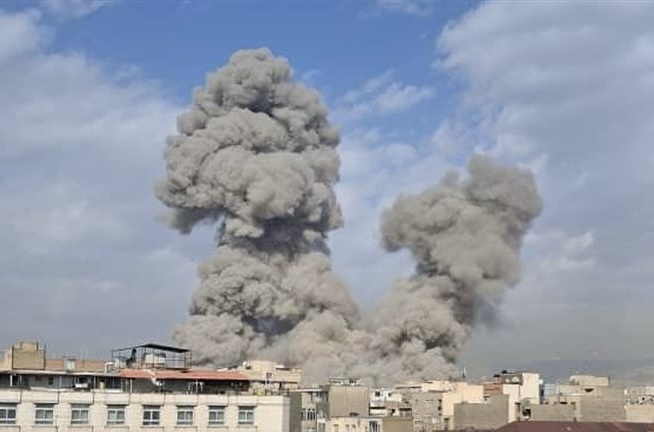I drove past a street sign recently that read Woodview. But I misread it. At first glance, I thought it said Worldview.
Which made me pause.
What does it mean to have a worldview? Not opinions. Not allegiances. But a way of seeing that stretches beyond the narrow borders of our own lives, our own countries, our own experiences.
We are taught to “see the forest for the trees.” But perhaps we are also called to see the world — not only as a map divided into countries and causes, but as a shared human home.
War broke out today in the Middle East. I’m not sure why the US and Israel decided that today was the day to bomb Iran. Who of course started bombing back. I don’t know what will happen next, or how it will end.
But I am absolutely certain of one thing.
Wherever bombs fall and sirens wail, people just like me are afraid.
Some huddle in shelters. Some wander, carrying whatever they could grab. Some rock children in their arms. Some wonder how they will charge their phone, how to reach loved ones, and how to find food for the morning.
I have never lived through war. I do not know what it is to wake to the sound of artillery fire or to measure a day by whether there is electricity or running water. But I carry a memory that comes close enough to teach me something.
Years ago, I volunteered with the local Red Cross. In the middle of the night, my phone would jangle me awake, and I would hurry to a house consumed by fire. I would step over hoses and watch for shattered glass, walk past flashing lights, curious neighbors, and barking dogs, looking for the people who had just lost everything.
We offered support to people in shock: vouchers for food, hotel rooms, and clothing. Calm and steady voices. A touch on the shoulder. Kindness.
The worst part of being at a house fire was the smell. It was more than just smoke. It was the things that burned, the water that soaked everything, the smoldering furniture and appliances and clothing.
I will never forget that smell. It clung to everything. It settled into my hair, my clothes, my car. I could wash my hair a dozen times and still smell it. I learned to strip off my clothes as soon as I came home, leaving them outside before slipping into bed naked, if there was anything left of the night. The smell lingered for days.
Loss lingers like that.
Fear lingers like that.
War lingers like that.
It is not only newscasts and headlines. It is not only borders and power. It is hunger and exhaustion and the disorientation of standing where a home once was. It is the emptiness of not knowing what tomorrow or next week will bring.
A worldview worthy of the name must hold that truth.
It must make room for the humanity of people we will never meet. It must resist the temptation to reduce suffering to slogans. It must remember that before anyone is a citizen or a soldier, they are a person.
War is inhuman.
It is inhumane.
And whatever else we may disagree about, that is something we should be able to see clearly.

